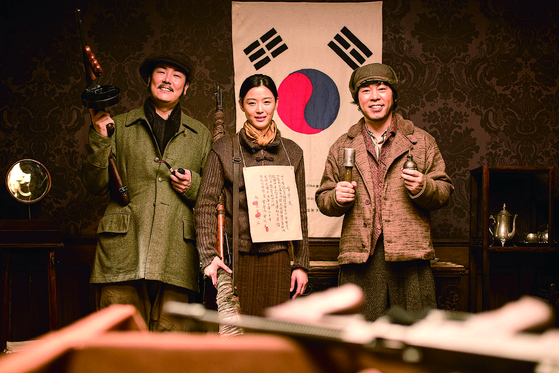radicalthought.org – Choi Dong-hoon’s 2015 South Korean historical action film, Assassination (Amsal), is a sprawling epic set during the Japanese colonial period in the 1930s. The film weaves a complex tale of resistance, patriotism, and betrayal as a group of Korean independence fighters are tasked with assassinating a high-ranking Japanese general and a pro-Japanese Korean collaborator. With its grand scale, intricate plot, and compelling characters, Assassination became a critical and commercial success, resonating deeply with Korean audiences. This article delves into the film’s narrative, characters, themes, and its impact on Korean historical cinema.
A Nation Divided: Plot Summary
The film begins in 1911 during the Japanese occupation of Korea, showing the seeds of resistance being sown. It then jumps to the 1930s, where Korea is under firm Japanese rule. A Korean independence fighter named Yeom Sek-jin, working within the Korean Provisional Government in Shanghai, is tasked with recruiting a team of assassins for a crucial mission in Japanese-occupied Gyeongseong (present-day Seoul).
Yeom selects three individuals: Ahn Ok-yun, a skilled sniper; Choo Sang-ok, a weapons expert; and Hwang Deok-sam, an explosives specialist. Unbeknownst to them, Yeom is a double agent working for the Japanese. The assassins arrive in Gyeongseong, unaware of the betrayal, and begin preparing for their mission. However, a professional hitman known as “Hawaii Pistol” is also hired by the Japanese to eliminate the assassins. The film unfolds as a complex game of cat and mouse, with the assassins facing danger from both the Japanese authorities and the treacherous double agent within their ranks.
Heroes and Traitors: Character Analysis
Assassination features a rich ensemble cast, each portraying characters with complex motivations:
- Ahn Ok-yun: Played with quiet strength by Jun Ji-hyun (Gianna Jun), Ahn Ok-yun is a skilled sniper with a tragic past. She becomes the de facto leader of the assassination team, driven by a strong sense of duty and patriotism.
- Hawaii Pistol: Portrayed with charismatic coolness by Lee Jung-jae, Hawaii Pistol is a Korean-born hitman working for the Japanese. His character adds a layer of moral ambiguity to the narrative.
- Yeom Sek-jin: Played with subtle menace by Lee Beom-soo, Yeom Sek-jin is the double agent whose betrayal sets the stage for much of the film’s conflict.
- Choo Sang-ok: Played with comedic timing and underlying seriousness by Cho Jin-woong, Choo Sang-ok is the team’s weapons expert.
- Hwang Deok-sam: Played with quiet determination by Choi Deok-moon, Hwang Deok-sam is the explosives specialist.
Themes of Patriotism, Betrayal, and Sacrifice
Assassination explores several powerful themes relevant to Korean history and identity:
- Patriotism and Resistance: The film celebrates the courage and sacrifice of the Korean independence fighters who resisted Japanese colonial rule. The characters’ unwavering commitment to their nation’s freedom is a central theme.
- Betrayal and Double Agents: The presence of a double agent within the independence movement highlights the complexities and dangers of espionage. The theme of betrayal adds a layer of suspense and moral ambiguity to the narrative.
- Sacrifice and Redemption: The characters in the film are willing to make significant sacrifices for their cause, some finding redemption along the way.
A Historical Epic with Action and Emotion: Impact and Legacy
Assassination became a massive box office hit in South Korea, resonating with audiences due to its patriotic themes, its thrilling action sequences, and its compelling characters. The film was also praised for its historical accuracy and its depiction of a crucial period in Korean history.
The film’s success further solidified Choi Dong-hoon’s reputation as a master storyteller and demonstrated the appeal of well-crafted historical epics. Its influence can be seen in subsequent Korean historical films that explore similar themes of resistance and national identity.
Conclusion
Assassination is a grand and compelling historical epic that successfully blends action, suspense, and emotional depth. The film’s exploration of patriotism, betrayal, and sacrifice within the context of the Korean independence movement makes it a powerful and unforgettable cinematic experience. Its success has cemented its place as a modern classic of Korean historical cinema.
